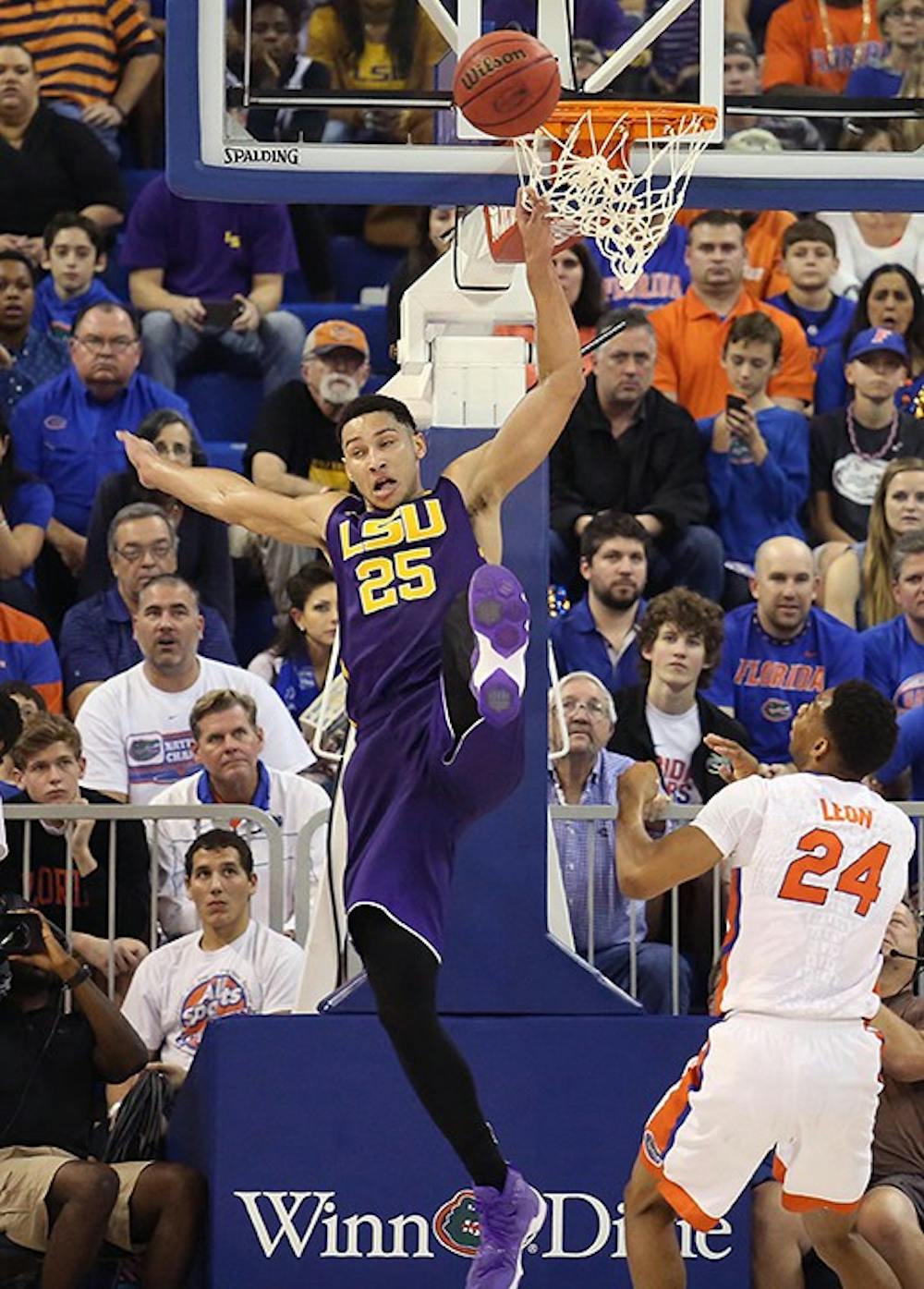On Monday, Louisiana State forward Ben Simmons declared for the NBA Draft nine days after his season abruptly ended in the second round of the SEC Tournament.
Simmons scored 10 points on 4-11 shooting in a 71-38 loss to the Texas A&M Aggies, which summed up the Tigers’ disappointing season.
It’s still unclear why Simmons committed to play his college basketball at LSU. Prior to his arrival, the Tigers made the NCAA Tournament just once in the previous six years and have basically been irrelevant since Shaquille O’Neal left in 1992.
The 2015-16 season was no different, despite the formerly No. 1-ranked high school player’s presence. LSU finished with a 19-14 record, missed the NCAA Tournament and later refused an invitation to the NIT.
So why did Simmons attend LSU in the first place, instead of a joining a top-tier program like Duke or Kentucky? What exactly was the point?
NBA scouts salivated at Simmons’ potential before he even played a college game and probably would have selected him first overall whether he played a minute of college basketball or not. Ideally, Simmons would have declared for the NBA Draft after winning three straight National High School Championships at the Montverde Academy in Florida, where he played his high school ball. But the league banned the high school-to-NBA move years nearly a decade ago, leaving players like Simmons in no man's land.
Several players have found loopholes in the NBA’s eligibility rules, most notably Australian point guard Dante Exum. Exum was a highly touted prospect, like Simmons, two years ago and opted to stay in Australia until he was eligible, rather than playing college basketball in America. Exum was already a lock as a lottery pick, so there was no reason to jeopardize his reputation with a year of college basketball.
Good numbers in college always help a prospect, as do the intangibles like size and strength. In those areas, Simmons is by far the most intriguing prospect. At 6-foot-10, 240 pounds, he’s got the ball handling ability of a point guard and the size of a modern-day NBA center. And his 19.2 points, 11.8 rebounds and 4.8 assists per game are a nice bonus, too.
But NBA teams also take into account winning, which was seriously lacking in Simmons’ case. As a result, Duke forward Brandon Ingram has emerged as the possible No. 1 pick, over the golden child Ben Simmons.
Ingram has led an under-talented roster, by Duke’s standard, deep into the NCAA Tournament by leaving it all on the court. Ingram doesn’t fret at the big stage and has grown mentally under coach Mike Krzyzewski. This is an element that the elite collegiate programs provide to their projected one-and-done prospects. Krzyzewski has done it at Duke, and John Calipari has done it at Kentucky.
This was not the case for Simmons.
Simmons tended to drift in and out of games far too often, especially as the leader of a Power Five team. He never took the season seriously, never truly invested in winning and truthfully wasted the time of basketball fans across the country. Simmons could have and should have been the unanimous winner of the prestigious Wooden Award, but was declared ineligible because of his GPA.
Years from now, Simmons’ college career may be viewed as a success, based solely on his statistics, but his mental immaturity will not be tolerated in the NBA. Nothing is guaranteed, and Simmons showed us that this season.

